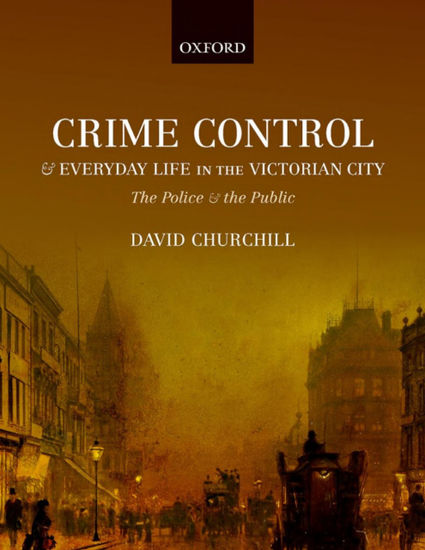
Article
David Churchill. Crime Control and Everyday Life in the Victorian City: The Police and the Public
The American Historical Review
(2019)
Abstract
Victorian policing is often set up as the standard by which policing before and after is measured. The foundation of the London Metropolitan Police in 1829 marks the moment when English policing began to be modern. In Crime Control and Everyday Life in the Victorian City: The Police and the Public, David Churchill is doing all he can to upend these assumptions. He makes a convincing case for revising the standard long-term narrative of the rise and fall of modern English policing, in particular challenging the idea that “popular participation in responding to crime atrophied with the emergence of professional policing” (241). Churchill instead finds plentiful evidence both for the shortcomings of the Victorian professional police and for the persistence of civilian initiative in crime control. By undermining the notion of Victorian policing as the standard, he is challenging interpretations of eighteenth-century policing that focus on professional policing starting sooner than 1829, since that date is no longer a sharp break. His ideas also upset work on more recent policing that contrasts contemporary dynamism with Victorian solidity, since Churchill shows clearly that Victorian policing was not noticeably more solid than later policing. Looking for a break in the pattern of English policing has led scholars to overlook continuities both backward and forward. He challenges the very idea that some transformation period in crime control needs to exist.
Disciplines
Publication Date
December, 2019
DOI
10.1093/ahr/rhz087
Citation Information
Joanne Klein. "David Churchill. Crime Control and Everyday Life in the Victorian City: The Police and the Public" The American Historical Review Vol. 124 Iss. 5 (2019) p. 1958 - 1959 Available at: http://works.bepress.com/joanne_klein/25/
